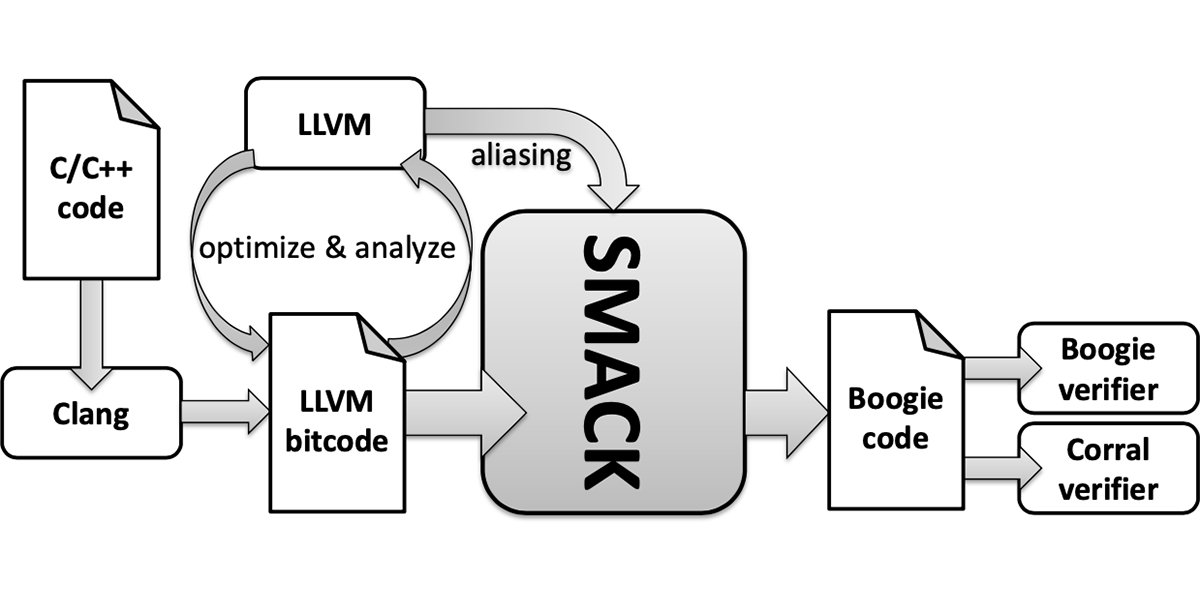
Abstract
A major obstacle to putting software verification research into practice is the high cost of developing the infrastructure enabling the application of verification algorithms to actual production code, in all of its complexity. Handling an entire programming language is a huge endeavor that few researchers are willing to undertake; even fewer could invest the effort to implement a verification algorithm for many source languages. To decouple the implementations of verification algorithms from the details of source languages, and enable rapid prototyping on production code, we have developed SMACK. At its core, SMACK is a translator from the LLVM intermediate representation (IR) into the Boogie intermediate verification language (IVL). Sourcing LLVM exploits an increasing number of compiler front ends, optimizations, and analyses. Targeting Boogie exploits a canonical platform which simplifies the implementation of algorithms for verification, model checking, and abstract interpretation. Our initial experience in verifying C-language programs is encouraging: SMACK is competitive in SV-COMP benchmarks, is able to translate large programs (100 KLOC), and is being used in several verification research prototypes.
Citation
Zvonimir Rakamaric,
Michael Emmi
SMACK: Decoupling Source Language Details from Verifier Implementations
Proceedings of the 26th International Conference on Computer Aided Verification (CAV), 8559: 106--113, doi:10.1007/978-3-319-08867-9_7, 2014.
BibTeX
@inproceedings{2014_cav_re,
title = {SMACK: Decoupling Source Language Details from Verifier Implementations},
author = {Zvonimir Rakamaric and Michael Emmi},
booktitle = {Proceedings of the 26th International Conference on Computer Aided Verification (CAV)},
series = {Lecture Notes in Computer Science},
volume = {8559},
publisher = {Springer},
editor = {Armin Biere and Roderick Bloem},
pages = {106--113},
doi = {10.1007/978-3-319-08867-9_7},
year = {2014}
}
Acknowledgements
Partially supported by NSF award CCF 1346756.

